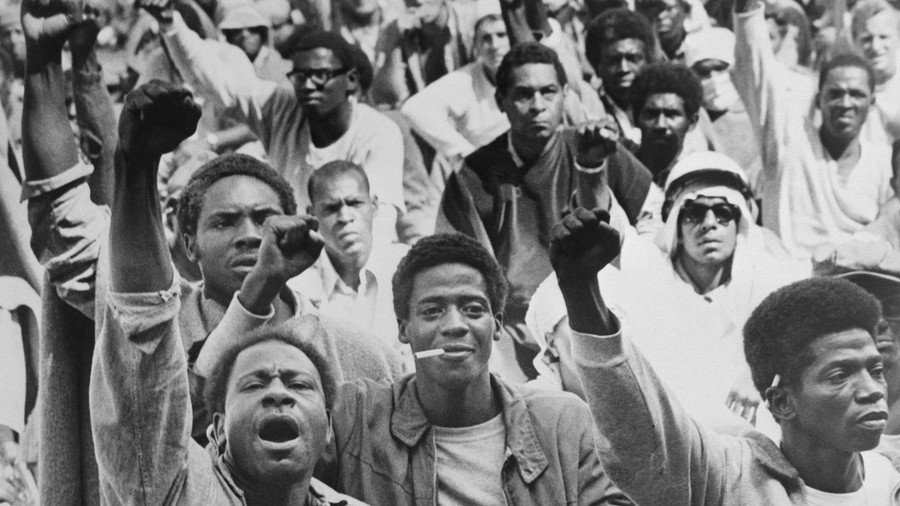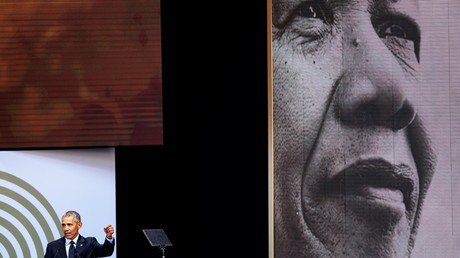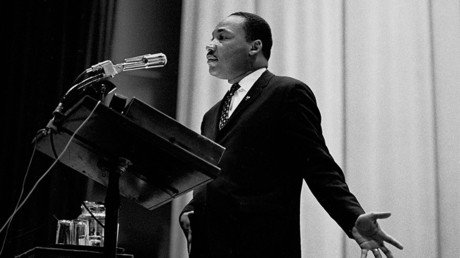Attica revolt 47 years on: Why infamous prison revolt still matters

The Attica prison revolt took place over four fateful days in September 1971, when inmates took over the the facility. Even now, some 47 years on, it still resonates.
Some 1,300 inmates were involved in the takeover of the Attica Correctional Facility in New York State from September 9 to September 13, 1971. They were driven to do so by the brutal conditions of their incarceration, leaving them no choice but to rise up and reassert their dignity and humanity in defiance.
Prison’s social & racial dynamics
Here I beg your indulgence with a brief digression of sociological import. Because in order to fully grasp the enormity of an event such as Attica – defined by the refusal of those deemed outlaws to submit to their prescribed status in a society where one class and race asserts the right to dominate and rule over another – we are obliged to grasp a truth that dare not speak its name. It is one most powerfully encapsulated in the words of US Pulitzer Prize-winning novelist Norman Mailer, who wrote:
“There is a paradox at the core of penology, and from it derives the thousand ills and afflictions of the prison system. It is that not only the worst of the young are sent to prison, but the best – that is, the proudest, the bravest, the most daring, the most enterprising, and the most undefeated of the poor.”
Mailer’s sentiments chimed with the worldview of George Jackson, whose death at the hands of prison guards at San Quentin State Prison in California in August 1971 was one of the triggers of the Attica uprising a few months later. In his internationally-acclaimed book of prison letters, ‘Soledad Brother’ (published a year before his death), Jackson places squarely on the table the fact that “Very few men imprisoned for economic crimes or even crimes of passion against the oppressor feel they are truly guilty.”
Such sentiments, forged in the belly of the beast of the US prison system, ensured that Jackson – just 29 at the time of his death – was not destined to remain long in this world.
Neither were the 33 inmates who perished in the Attica prison revolt, 29 of them killed in the hail of bullets that was unleashed by prison guards and police officers on its fifth and climatic day, along with 10 of the prison guards the inmates had taken hostage.
That 60 percent of the inmates incarcerated in Attica at the time were black and Latino, while 100 percent of the guards were white, is a detail of immense significance when it comes to grasping the racially-divided culture that exists within the US prison system both then and now. It is a racial divide that supports a power dynamic which reflects, in concentrated form, one that has long existed in America and continues to exist to this day; Barack Obama’s election as president in 2008 notwithstanding.
Prison conditions within Attica were, as mentioned, atrocious. In his ‘People’s History of the United States,’ US historian Howard Zinn informs us of how “Prisoners [in Attica] spent 14 to 16 hours a day in their cells, their mail was read, their reading material restricted, their visits from families conducted through a mesh screen, their medical care disgraceful, their parole system inequitable, racism everywhere.”
The anger and desperation of the inmates as a result of those conditions was powerfully articulated by one of the leaders of the revolt, Elliot L D Barkley, in an impassioned speech to the media:
“We are men! We are not beasts and do not intend to be beaten or driven as such!”
Wider US social & political context to Attica revolt
Attica, it is important to grasp, did not take place in a social or political vacuum. On the contrary, it erupted during a period of seismic social and political upheaval within America at large.
The anti-Vietnam War movement, along with the black power and civil rights movements, had cultivated a radical consciousness that forced itself into the mainstream. This consciousness was especially prevalent among young people, encompassing those who were politically active on student campuses over the war in Vietnam, and those belonging to predominately black and brown low-income communities in response to racist police brutality, poverty, and poor housing conditions. It was, to paraphrase Malcolm X, a time to stand for something or fall for anything.
This growing demand for radical change and the challenge to the status quo it authored also produced something of an anti-establishment cultural renaissance, the fruits of which are some of the best movies, popular music and literature to ever come out of America. Indeed Attica was referenced as part of this cultural movement, most poignantly in a classic scene in the critically-acclaimed 1975 Al Pacino movie, ‘Dog Day Afternoon.’
Heavyweight boxing legend Muhammad Ali also felt compelled to commemorate Attica, doing so in the form of a poem he memorably recited during an interview on Irish television in 1972, in advance of his fight against Al ‘Blue’ Lewis in Dublin.
The point is that the political and social upheaval that was underway across America nourished a growing political consciousness within the US prison system, turning these institutions into hotbeds of radical and revolutionary ideas. It was a time when inmates were organizing themselves politically, forming networks to combat and resist the prison authorities on ideological and revolutionary grounds, drawing inspiration from anti-colonial and national liberation movements throughout the Third World.
Attica Liberation Faction manifesto
The Attica Liberation Faction (ALF) was part of this radical prison network. Established in June 1971 by five inmates, the group produced a manifesto outlining a series of demands to the prison authorities with regard to the improvement of prison conditions. The manifesto was copied and distributed among the prison population. The response of the prison authorities was a clamp down, involving a wave of random and aggressive cell searches and the punishment of any inmate caught with a copy of the ALF demands.
A notable aspect of the Attica revolt was the racial harmony that held sway among the inmates from beginning all the way through to murderous end. Considering that racial divisions within Attica and across the entire US prison system were deeply entrenched – not only between inmates and guards but also between the inmates themselves – there is no stronger testament to the political consciousness that had been sown by groups such as the ALF during this period.
As for those who would dismiss the events at Attica as a disorganized riot involving a vile rabble of murderers, thieves, and thugs, this is what is known as eating at the table of the accomplished fact.
As it was during the time of the Attica revolt so it is now – namely that the vast majority of people in prison – not only in America but in any society defined by inequality, alienation and social and economic injustice – are there not because of the choices they make but primarily the choices made for them.
If, as sociologists say, it is true that a crime is an individual act of unconscious rebellion, then it is likewise true that for four fateful days in September 1971, at the Attica Correctional Facility in New York, a collective and conscious rebellion erupted.
Of the two, it is the latter the status quo has always feared most.
As to the last word, this privilege goes to ‘Soledad Brother’ George Jackson: “I’ll never make peace with this world as long as the enemies of self-determination have the running of things.”
Think your friends would be interested? Share this story!
The statements, views and opinions expressed in this column are solely those of the author and do not necessarily represent those of RT.

















